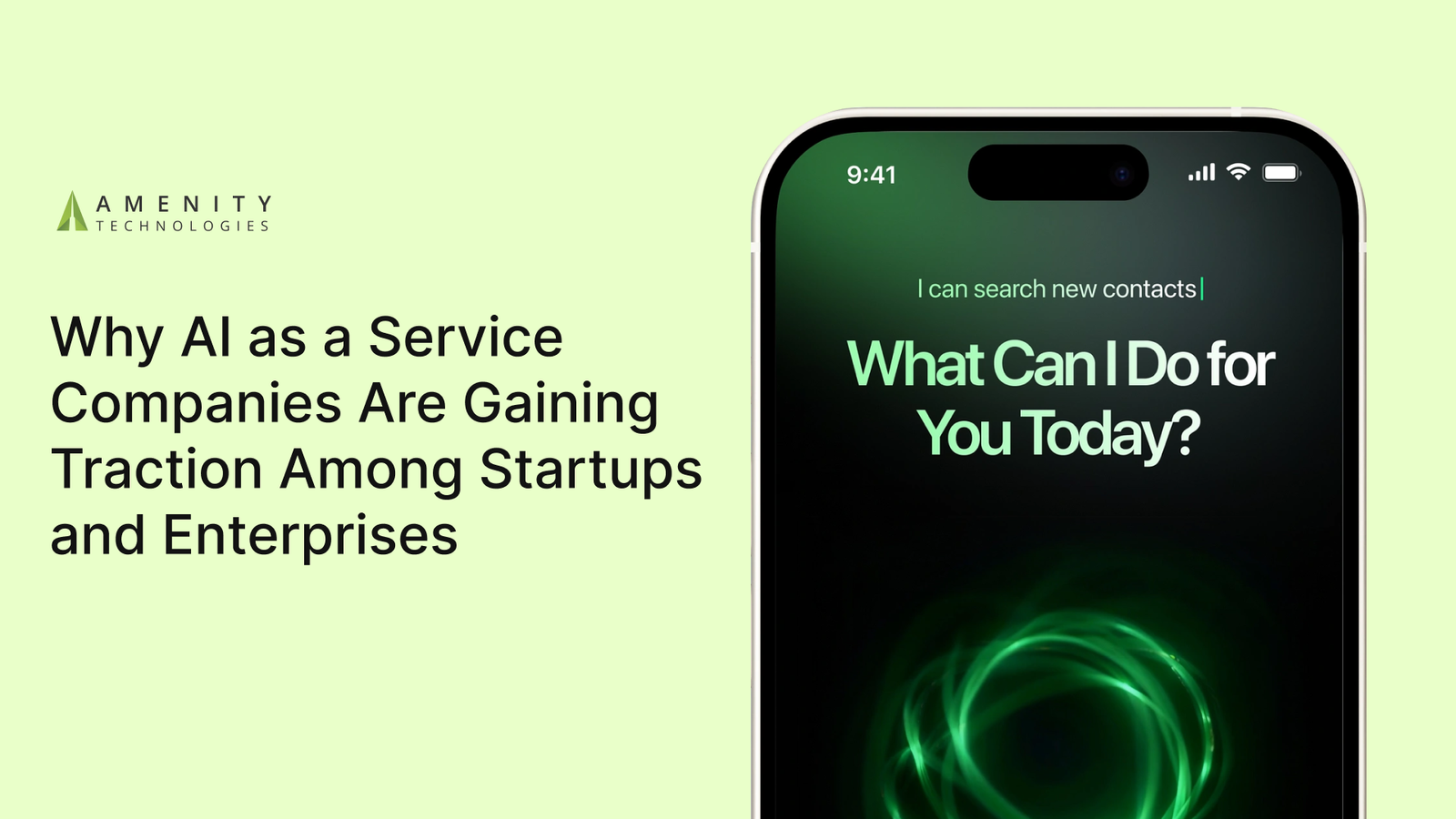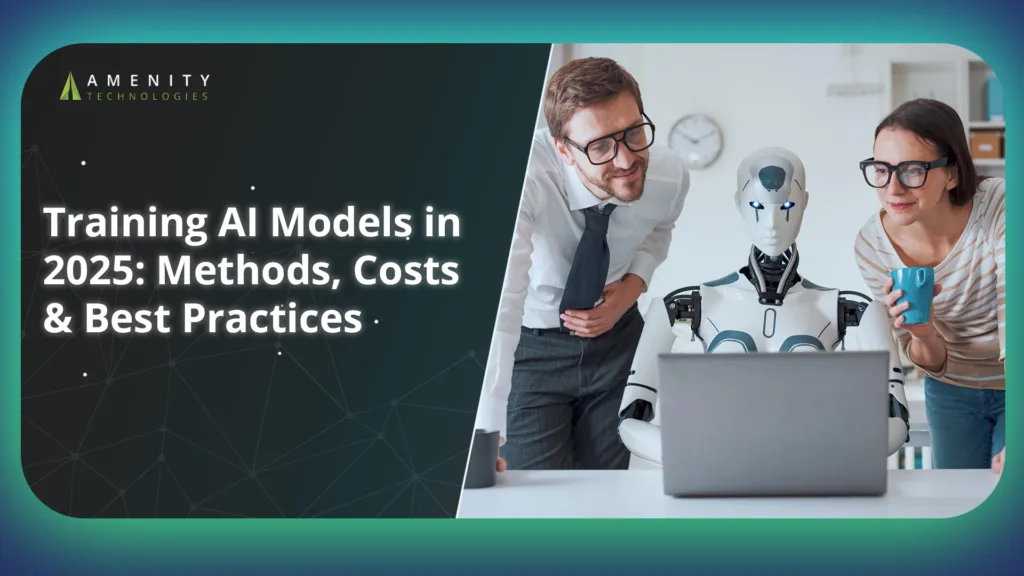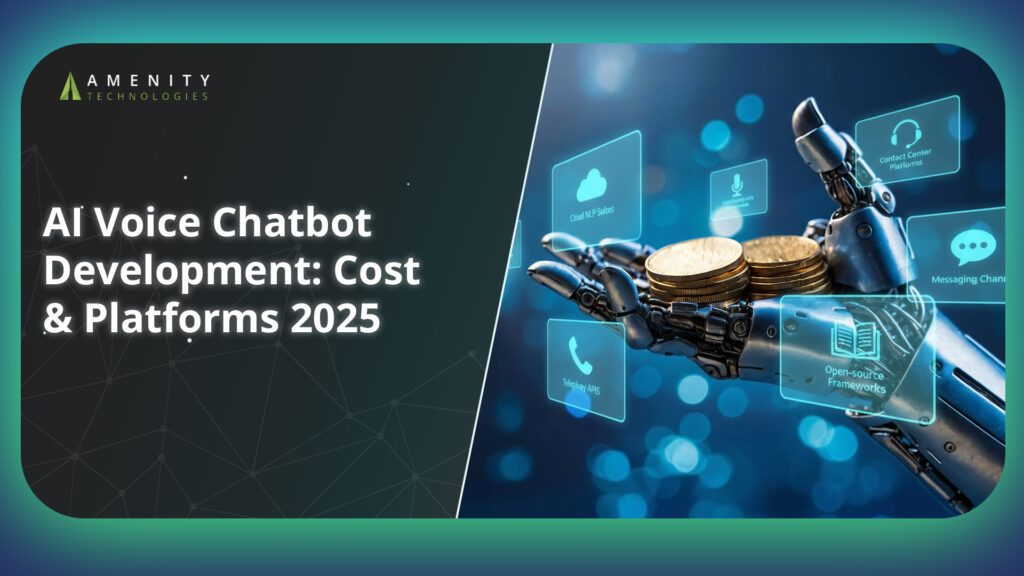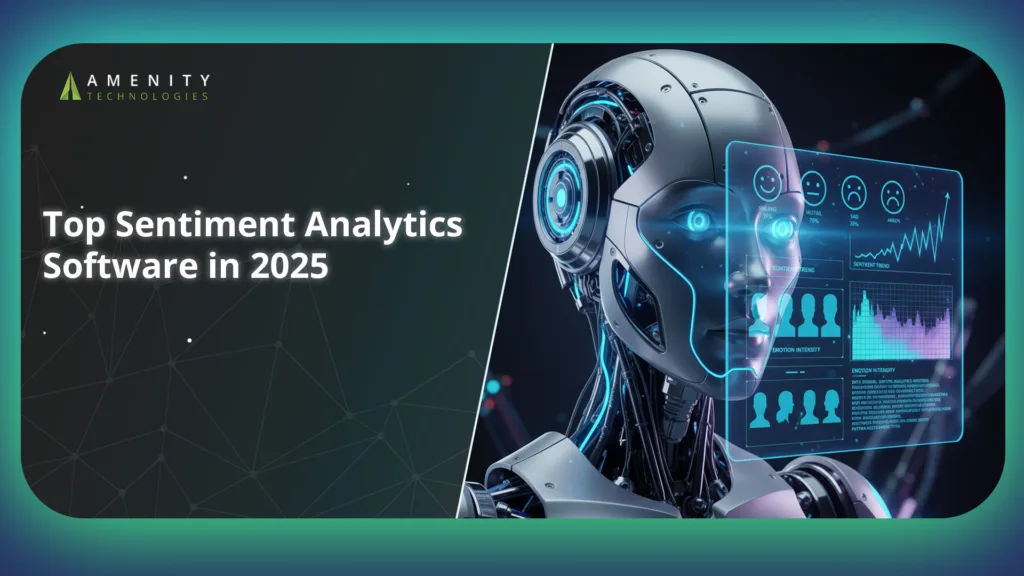AI as a Service (AIaaS) is rapidly transforming how businesses access and utilize artificial intelligence. In 2025, the global AIaaS market is projected to grow from $20.26 billion to $91.20 billion by 2030, reflecting a compound annual growth rate (CAGR) of 35.1% . This surge is driven by the increasing need for scalable, cost-effective AI solutions that eliminate the complexities of building and maintaining in-house AI infrastructure.
Startups and enterprises alike are turning to AI as a Service companies to streamline operations and accelerate innovation. For instance, approximately 85% of enterprises are expected to implement AI agents by the end of 2025, leveraging them for improved efficiency and customer engagement. With the rise of generative AI and cloud-based AI services, businesses can now integrate advanced AI capabilities into their operations without the need for extensive technical expertise.
Let’s understand how AI as a Service companies are gaining traction among startups and enterprises, the key components of AIaaS, its benefits, and the challenges organizations may face in its adoption.
What is AI as a Service?
AI as a Service (AIaaS) provides ready-to-use AI capabilities through cloud platforms. It lets businesses integrate features like natural language processing, computer vision, recommendation systems, and predictive analytics via APIs or web interfaces. This model removes the need for companies to develop AI models from scratch or invest in costly hardware.
Key components of AI as a Service include:
- API access to prebuilt AI models
- Managed computing resources such as GPUs or TPUs
- Flexible billing models like pay-as-you-go or subscription
- Secure, compliant cloud environments
By offering these features, AI as a service companies simplify AI adoption and enable organizations to focus on applying AI to solve business problems instead of managing infrastructure or technical complexity.
Why AIaaS Gains Traction Among Startups?
Startups often face tight budgets and limited teams. AI as a Service removes barriers by providing instant access to advanced AI without the need for expensive servers or large AI teams. Startups can quickly build minimum viable products (MVPs) and test new ideas using pre-trained models.
These companies benefit from integrating features like natural language processing or computer vision to differentiate their offerings. AIaaS also helps startups gain investor confidence by demonstrating scalable AI capabilities early on.
The accessibility and speed offered by AI as a service companies allow startups to focus on product innovation and market fit without getting bogged down in technical infrastructure or hiring challenges. This approach supports rapid growth and competitive positioning in technology-driven markets.
Why Enterprises Adopt AIaaS?
Large organizations use AI as a service to accelerate AI integration across departments like IT, marketing, HR, and operations. This approach reduces development time by leveraging prebuilt models and managed infrastructure. Enterprises benefit from consuming AI on a pay-as-you-go basis, which helps control costs and manage budgets effectively.
Many companies face shortages in AI talent, so outsourcing core AI functions to AI as a service companies fills that gap while maintaining performance standards. Vendors offer industry-specific solutions, compliance features, and support for large-scale workloads.
With AI agents becoming more common in enterprise operations, automation replaces manual, repetitive tasks. This shift improves efficiency and frees staff to focus on higher-value activities. Enterprises gain flexibility and scalability without reinventing their AI capabilities from scratch.
Key AIaaS Segments and Use Cases
Let’s understand different key AIaaS segments and their use cases:
1. Generative AI and AI Agents
Gen AI and AI agents have become central to many AI offerings. These tools allow businesses to create customizable AI agents without coding. Such agents can automate complex workflows, generate detailed reports, and handle customer inquiries efficiently. For example, an AI agent can manage scheduling or process support tickets, reducing the need for manual intervention and speeding up response times.
2. Natural Language Processing (NLP) and Vision APIs
They serve as ready-to-use components for common AI tasks. NLP APIs enable features like chatbots, sentiment analysis, voice recognition, and automatic text summarization. Vision APIs support image recognition, classification, and object detection. These APIs let companies integrate advanced capabilities quickly, improving user experience and operational efficiency without building models from scratch.
3. GPU Cloud Platforms
These platforms provide scalable, on-demand access to high-performance computing resources required for training and deploying custom AI models. Instead of investing in costly hardware, organizations rent GPU or TPU power through cloud providers. This flexibility accelerates development cycles and reduces upfront costs, making AI projects more feasible for startups and enterprises alike.
4. Industry-Specific AI Solutions
The industry-specific AI solutions cater to particular sectors with AI models trained on relevant data sets. For example, healthcare AI solutions focus on medical imaging analysis or patient data processing, while finance AI tools target fraud detection or risk assessment. Multilingual AI models support localization needs across global markets. These specialized offerings simplify adoption by delivering models that understand sector-specific challenges and comply with industry regulations.
Through these focused segments, AI as a service companies offer scalable, customizable AI tools that reduce complexity and accelerate the path from concept to deployment across diverse industries.
Challenges Facing AIaaS Adoption
Despite growing interest, several challenges affect the adoption of AI as a Service solutions.
1. Model Reliability
One common issue is model reliability. AI outputs can sometimes be inaccurate or misleading, which risks business decisions based on faulty data. Ensuring consistent performance requires ongoing monitoring and validation.
2. Vendor Lock-in
Vendor lock-in presents another concern. Companies may become dependent on a single ai as a service company’s platform, making future migrations costly or difficult. This dependency limits flexibility and negotiating power.
3. Data Security
Data security remains a top priority. Entrusting sensitive information to external providers raises questions about compliance, privacy, and protection against breaches. Organizations must evaluate providers’ security measures thoroughly.
4. Unpredictable Costs
Cost unpredictability also impacts adoption. Without proper usage controls, pay-as-you-go pricing can lead to unexpected expenses, especially during scaling or heavy demand periods. Monitoring consumption and setting usage limits are essential to avoid budget overruns.
Addressing these challenges requires careful vendor selection, clear governance policies, and active management of AI usage to maintain control and safeguard resources.
How Amenity Technologies Can Help?
Amenity Technologies simplifies the integration of AI as a Service for businesses of all sizes. We provide fully managed infrastructure that scales compute resources based on demand, eliminating the need for heavy upfront investment. This approach ensures reliable performance for AI workloads without operational complexity.
Our expert AI developers enable seamless integration of AI agents into everyday workflows, allowing companies to automate routine tasks without additional overhead. The multilingual and customizable AI models adapt to specific industry requirements, whether in healthcare, finance, or retail, ensuring relevance and compliance.
We offer enterprise-grade monitoring, version control, and model governance to maintain transparency and reliability throughout the AI lifecycle. Our developers also support fine-tuning and retraining of models using proprietary datasets, improving accuracy and business alignment.
For startups, Amenity Tech acts as a technical partner, accelerating prototype development and scaling. Enterprises benefit from a modular, secure, and scalable AI foundation that supports innovation and operational efficiency. This partnership reduces the barriers to adopting advanced AI capabilities while maintaining control and security.
Conclusion
AI as a Service companies are transforming how businesses adopt and scale artificial intelligence. Startups leverage AIaaS to speed up development, reduce costs, and add AI-driven features without large teams.
Enterprises rely on these services to roll out AI across departments with greater flexibility and control. The combination of accessible models, flexible pricing, and cloud-based delivery makes AIaaS an efficient solution for automation and innovation.
As AI agents and generative AI tools improve, the gap between experimental projects and production-ready systems will narrow. Companies that adopt AI as a Service now position themselves to stay competitive and agile in an increasingly data-driven market.












